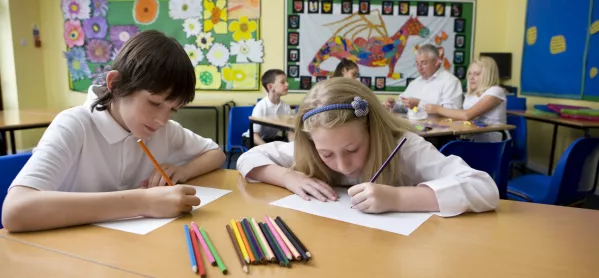Remember not so long ago, when the most we had to worry about was our pupils missing the odd Friday for Greta Thunberg’s climate strikes?
Everyone from schools minister Nick Gibb to your granny had an opinion on whether it was worth missing a day’s “vital” schooling to save the world. Could kids really afford to miss a morning of fronted adverbials and long division?
Today, as the spectre of coronavirus hangs over almost everyone on the planet, there is little debate over the decision to keep the majority of children off school “for the foreseeable future”.
Although we understand why it’s been done, it feels brutal. How do you tell a child that they won’t be seeing their favourite teacher or their friends for, well, ever? It won’t be that long, of course, but during weeks in isolation at home, not knowing their release date, it might seem like it to them.
And this abrupt end to proceedings was particularly harsh for all those children preparing for GCSEs and A levels. And also key stage 2 Sats.
Coronavirus results in unsat Sats
Children at primary school are likely to have spent at least the last term with lessons entirely focused on maths and English.
My own Year 6 son was resigned to this monotonous diet of past papers because of the promise of things to come in the summer term: the chance to set up a small business, visit a theme park and put on a big musical show.
This term, the curriculum may be narrow and boring, he understood, but it will be full and enriching in just a few months’ time.
After years of being too shy to take part in school productions, he was finally looking forward to auditioning for a big role. The prospect of making cash by setting up his own company in school was so exciting.
But, of course, he may well have lost all of this. It’s unclear as yet, but there’s every chance his primary schooling is going to end on the bum note of some unsat Sats.
Teaching as if each lesson were their last
For me, it has really underscored the preciousness of our children’s time at school, and how we must stop wasting it on things that do not matter all that much. Every child matters, and so does every term.
In Year 6, children are starting to blossom into wonderful young people with their own views and their own minds. They’re capable of so much. Depriving them of the full range of subjects, project work, practical activities and opportunities for real reflection feels tragic at the best of times.
At these, the worst of times, I want to weep at the lost opportunity. A proper, fully rounded education is not something that can be put off to another time. It’s not an optional dessert after a bland ready meal of maths and English. It’s not a summer-term fling that doesn’t really matter once the real work of servicing the accountability system is done.
The same goes for those whose subject choices for GCSE have been pared down to the essentials, in the hope they will scrape the right grades in maths and English.
If we are lucky, perhaps recent events will prompt a new atmosphere of curriculum carpe diem, from ministers to heads and classroom teachers.
From now on, perhaps it’s worth asking ourselves what we would teach our kids if we thought each lesson would be their last. How to be curious? How to ask the right questions? How to keep their head when all about them are losing theirs?
We wouldn’t be worrying about where to put a semicolon, that’s for sure.
Irena Barker is an education writer. She tweets as @irenabarker




